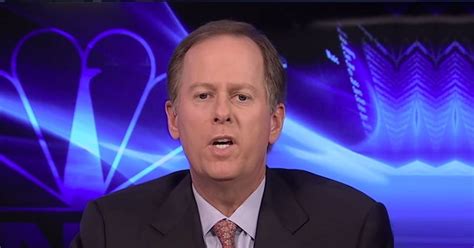A Quote by Diane Garnick
Accounting does not make corporate earnings or balance sheets more volatile. Accounting just increases the transparency of volatility in earnings.
Related Quotes
Everyone caved, adopted loose [accounting] standards, and created exotic derivatives linked to theoretical models. As a result, all kinds of earnings, blessed by accountants, are not really being earned. When you reach for the money, it melts away. It was never there. It [accounting for derivatives] is just disgusting. It is a sewer, and if I'm right, there will be hell to pay in due course. All of you will have to prepare to deal with a blow-up of derivative books.
You have to understand accounting and you have to understand the nuances of accounting. It's the language of business and it's an imperfect language, but unless you are willing to put in the effort to learn accounting - how to read and interpret financial statements - you really shouldn't select stocks yourself
I think there's an awful lot of twaddle and bullshit on EVA. The whole game is to turn retained earnings into more earnings. EVA has ideas about cost of capital that make no sense. Of course, if a company generates high returns on capital and can maintain this over time, it will do well. But the mental system as a whole does not work.
I don't mean to sugarcoat the figure on restatements, but I think it is positive - it shows a healthy system. The general impression of the public is that accounting rules are black and white. They are often anything but that, and in many instances the changes in earnings came after new interpretations by the chief accountant of the SEC.
The big picture is: the main thing you should be concerned about in the future are incremental returns on capital going forward. As it turns out, past history of a good return on capital is a good proxy for this but obviously not foolproof. I think this is an area where thoughtful analysis can add value to any simple ranking/screening strategy such as the magic formula. When doing in depth analysis of companies, I care very much about long term earnings power, not necessarily so much about the volatility of that earnings power but about my certainty of "normal" earnings power over time.





























